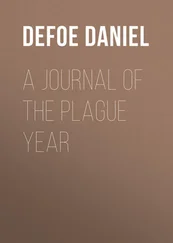People who were admitted to the hospital were placed in a special unit that became, by the end of that first month, overwhelmed and crowded. They were treated by nurses and doctors in full-body protective gear. Reports about the drastic procedures in place to contain the disease frightened many locals, even when they didn’t exhibit symptoms. Those who were admitted to the hospital were isolated. Asymptomatic Vancouverites who shared homes with patients infected with the disease were told to remain housebound for a week until they were in the clear.
Authorities, including Dr Bernard Rieux’s friend Dr Orla Castello, did not know what to make of this outbreak and took extreme measures. If they knew the rate at which infection would spread, they might not have been so scrupulous. Having read articles about the efficiency of quarantine, Rieux decided that any effort to seal plague patients from the outside world was ineffective and a violation of personal freedom. He did not share this opinion widely, but perhaps it was revealed in his manner. To outsiders, he seemed aloof and awkward but also independent-minded. Perhaps this explained why he found himself paying unofficial house calls.
The first request came from Megan Tso. Rieux was brushing his teeth before bed when his phone rang. “You’re the only person I could think of,” she told him. She was calling on behalf of a friend whose father had been feeling unwell.
Rieux later admitted that he found Tso amusing. On the phone, he merely grunted and asked for the patient’s address. He told his mother that he was seeing a patient (without mentioning she was the woman from the airport). He got dressed, slipped on a pair of hiking boots, and walked thirty minutes through another flurry. The fresh powder provided traction on the unshovelled sidewalks and icy patches along the side streets. With road salt in short supply, people had begun stealing beach sand to line the roads.
Tso, shivering in a black leather jacket, was waiting for him outside the door of an older house next to a papered-over storefront. She led him to the ground-floor suite where Isaac “Izzy” Grossman lived. The old man wore a bathrobe and lay on a lime-green tweed couch. Tso introduced Rieux to him and to his daughter Janice. Izzy looked at Rieux, who was preoccupied with his gloves and face mask, and then to his daughter. He groaned as he planted one foot on the chipped hardwood floor, then the other, exposing his genitalia.
Rieux discussed Mr Grossman’s symptoms with his daughter. He’d been weak and feverish since the morning and said that he was tired. Janice Grossman called Tso when her father began to spit up blood. “He needs to go to the hospital and get put on antibiotics,” Rieux said. “They haven’t proven as effective as usual. But the chances that he will die without them are near certain.”
Mr Grossman shook his head. “It’s a butcher shop there,” he croaked.
“There must be another way,” Tso suggested. “Can we just get the antibiotics from the drug store and give them to him?”
Rieux shook his head. “He has to be monitored closely.”
“We can do that,” Grossman insisted. “I’m out of work. What else am I going to do? Please, doctor. There’s a reason why we called you.”
Rieux said he would wait until the ambulance arrived. When he saw the red lights of the vehicle outside, Mr Grossman began to weep. His daughter was in his bedroom, opening drawers and closets in a flurry of motion in an attempt to gather his things. Mr Grossman dropped to the floor in a fetal position. Two paramedics, dressed from head to toe in protective gear, picked him up under each arm, lifted him onto a stretcher, and carried him out the door. Rieux identified himself to one paramedic, whose eyes seemed small within an oversized face mask, and offered a rundown of Mr Grossman’s symptoms.
When Janice Grossman followed Rieux with some of her father’s possessions in a reusable shopping bag, Izzy raised his arm.
“Don’t come with me,” Mr Grossman told her. “Don’t visit me.”
She became immobile. Was he upset at her? Was he trying to save her? Rieux could not tell. Grossman looked to her friend. “Of course you should go,” Tso told her. She took her by the arm and hurried her in the direction of the ambulance. Rieux moved ahead of them. From the door, he yelled at one of the paramedics to wait for her.
Rieux and Tso stood in the snow and watched the ambulance disappear. After some careful hand washing with the sanitizer he brought with him, Rieux exchanged his mask for a toque. Tso was already wearing her jacket as she held open the door. She thanked him for coming on short notice. “Which way are you going?” she asked.
He pointed in one direction; she was going in the other. She’d walk with him anyhow. Under a streetlight, he noticed the freckles on her nose and her wide cheekbones. She seemed to him like someone who was tired of being pretty, who downplayed her looks—an attitude and behaviour that served as an erotic dog whistle to a particular kind of person. “I’ve got nothing better to do,” she said. “It’s funny how time works. We’re all worried about our lives being dramatically shortened, but in the meanwhile, we just wait, playing video games.”
“I wish I could take a break,” he said.
“But you’re not someone who takes vacations, am I right?”
“Not true,” he blurted out. “My wife and I cycled through the Swiss Alps two years ago. The year before that we hiked the West Coast Trail.”
She laughed. “How many calories did you burn?”
Along Main Street, there seemed to be more people but less traffic than usual at this time of night. Some businesses had posted signs apologizing, in neighbourly language, for temporarily closing. Others kept their doors open, despite a lack of customer interest or inventory, to maintain normalcy. They passed a sandwich board outside one restaurant that had this message written in chalk: “We still have wine (for now). Come inside!”
Tso offered to buy Rieux a glass of wine, and he hesitated only for a moment before he followed her inside. The restaurant was full of people still wearing jackets, the ice half-melted on their boots, and the music evoked his idea of a European discotheque in the 1970s. The server, a tall, tanned woman in latex gloves, recognized Tso, who shrieked in surprise and asked her about her massage school training. After they finished chatting, she handed them menus and wine lists with items struck out with black marker. His eyes were drawn to the black lines. The missing text looked like classified information. “I’m sorry,” the server, whom Tso introduced as Gudrun, told her. “But we ran out of the tempranillo yesterday.”
“Are you picky about red wine?” Tso asked Rieux. He shook his head. She looked relieved. Tso picked one of the remaining wines and the waitress took their menus.
“Do you come to Vancouver often?” he asked her. “How do you know everyone?”
She told him it was only her second visit to the city. “I don’t know anyone here. I met Janice when I arrived a month ago. She’s become my Vancouver sister—or daughter. And the waitress, I met her the other day—it’s a long story. She didn’t even tell me she worked here.” The server brought a half-carafe of wine and two glasses. Tso poured. “It’s actually easy to make friends. We’re all going through something momentous and unique. I have no one here who I know well, who understands. I’ve chatted with my aunt and my friends back home, but it’s stilted. They don’t know what’s going on in this place, and I can’t describe it to them.”
“It’s easy to make friends when strangers want to talk to you,” he told her. He regretted that his statement sounded like an accusation. He was tired and would have blown off Tso’s request if it had come from anyone else, but her charisma compelled him, in part, because it was the inverse of his. Even as a child, he couldn’t make friends, and in university did his lab projects un-partnered. He compensated by joining clubs and playing team sports. He became a general practitioner, not a researcher—a better fit for his solitary temperament and idealism—so he could have the chance to speak to people. “It’s a talent I don’t have,” he admitted.
Читать дальше












